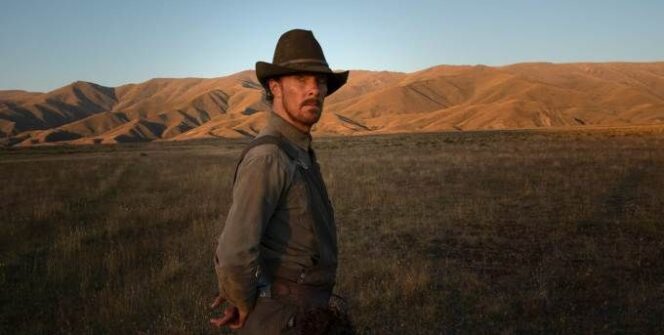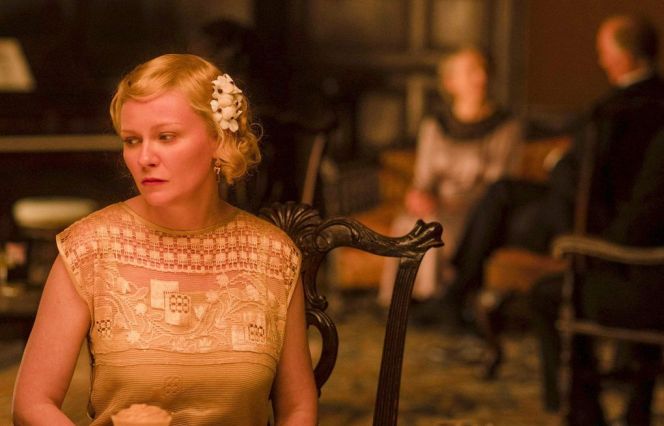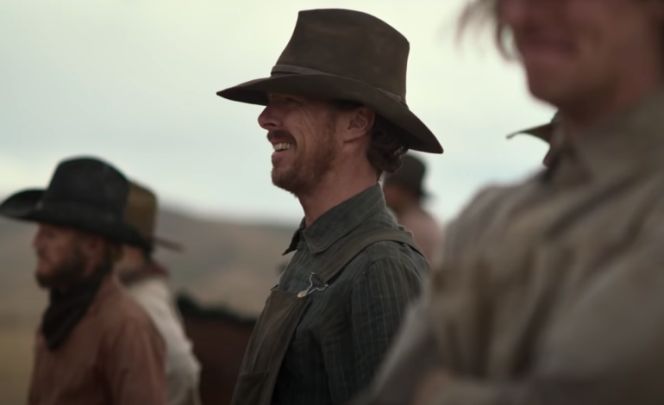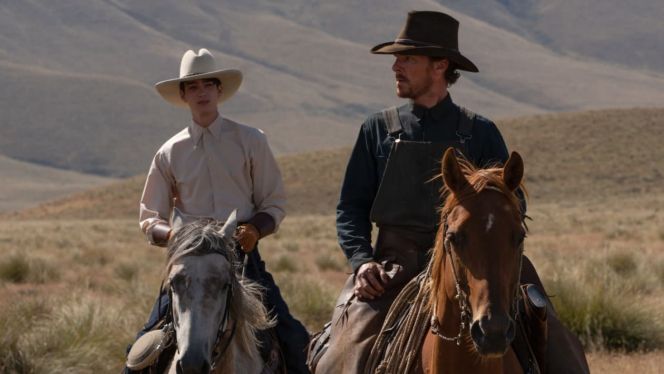MOVIE REVIEW – It takes particularly cold-blooded and inventive sadism to use the banjo as a psychological weapon, but that’s exactly what Phil Burbank, played by Benedict Cumberbatch, does to his mulish brother’s new wife as the oddball anti-hero of a Western.
Netflix’s latest film is an arty western where the film’s anti-heroes kill each other with cruel words, humiliation and other ingenious methods instead of Colt. The film, which hit the streaming platform on December 1st, is based on the 1967 book by Thomas Savage and written and directed by Jane Campion.
When you hate your brother’s wife
The strange story is set in 1925, Montana. Widowed Rose (Kirsten Dunst) marries the somewhat simple-minded and dowdy but kind-hearted farmer George Burbank (Jesse Plemons). She moves into the farm’s mansion, which George shares with his brother Phil (Benedict Cumberbatch), who is horrified by her mere presence and can’t hide it. While the nervous, hesitant Rose practices playing Strauss’s “Radetzky’s Indulgence” on the piano, repeatedly hitting the wrong keys, she gradually notices the echo of the same song coming from upstairs. In the shadows, there’s Phil, playing the music professionally on his banjo, finishing it with a flourish – leaving Rose shaking and terrified. So instead of Colt, it’s a real musical duel, the aim being to humiliate the other.
Such extraordinary scenes and powerful story solutions abound in Jane Campion’s The Dog in the Clutches, an often beautiful, contemplative and philosophical, sometimes dark and unforgiving film based on Thomas Savage’s 1967 novel of the same name. Jane Campion returns to feature filmmaking for the first time since The Piano, which she directed 12 years ago and tells a unique tale that echoes everything from the story of Cain and Abel to Heavenly Days and Beyond Friendship. Campion’s native New Zealand is a great stand-in for the Wild West of the early 20th century. The Power of the Dog is a study of the almost surreal beauty of the mountains, the sky and the vast land, and the contrasts between the nasty, petty and often unspeakably rude treatment of people towards each other – even their own relatives.
Hate is the keyword among those relatives
Writer-director Campion divides the story into five chapters, identified by Roman numerals. In the first scenes, we are introduced to the Burbank brothers, who run the family farm together, sharing a bedroom as if they were teenagers, even though there is plenty of room in the large (albeit dark and somewhat forbidding) house where they live. Phil (Cumberbatch) is a heavy-handed, seasoned cowboy who is almost ashamed of his erudition and sophistication, and takes pleasure in teasing his younger brother George (Plemons), calling him “Fat”, and never misses an opportunity to embarrass him in front of the ranch hands who idolise Phil, and enjoys his stories about the late, legendary “Bronco Henry” who taught Phil everything he knows.
The excellent production design perfectly captures the 1925 Montana at a crossroads; the rich have cars, and there’s a little Roaring Twenties debauchery here and there, but when you’re on the farm, it’s like it’s still 1870. When Phil takes the boys into town for a night out with the local prostitutes at the tavern, followed by a dinner at the neighbouring Red Mill Inn and Restaurant, we get to know the owner-operator of the Red Mill, the gentle Rose (Dunst) and her sensitive, artistic son Peter (Smit-McPhee). She makes elaborate paper flower arrangements for the tables. You can imagine how the homophobic, hateful Phil reacts. After Phil’s typically rude behaviour brings Rose to tears, George lingers to comfort Rose, and we see the beginnings of a romance.
As much as George is a boorish character, he is astonished and angered when he announces that he has married Rose and brings her to the farm. What’s more, she’ll be staying there this summer when Peter comes home from school.
Cumberbatch is incredible
You can almost feel the tension in the film, but there are romantic and sweet moments in the beginning, such as when Rose tries to teach George to dance, and George tearfully tells her that it’s just nice not to be alone anymore. More often, however, Phil’s poisonous ways reach out like a tentacle through the house as he taunts Peter and terrorises Rose to the point where she drinks herself into a stupor, only to become numb and not feel the psychological terror. Unfortunately, though well-intentioned, George is either too blind or weak to confront his utterly authoritarian and cruel brother. Perhaps a little of both.
Eventually, however, we begin to see Peter in a different light – and so does Phil, who takes the boy under his wing, teaches him to ride and makes him a special rope. We get a better sense of what’s going on between the two of them until we don’t, and we leave it at that.
Is Cumberbatch’s Oscar in the pipeline?
The Power of the Dog is full of memorable performances, but one of the strongest is Benedict Cumberbatch. He plays one of the most exciting and complex roles of his acting career masterfully. He is at once stunningly obnoxious yet highly intelligent, a rebellious yet toxically macho and abrasive character, all the while somehow unable to come to terms with his own demons and repressed emotions. But there’s also an incredible performance by the other main character, Kodi Smit-McPhee, who you’d put in a box when she’s startled in the next scene. In the same way that you can’t put this psychological western in any package. If I could single out one film that reminds me of it, it’s “There Will be Blood” – Cumberbatch plays a similar character to Daniel-Day Lewis in that western drama. There will be “blood” here, too – just in a slightly different way…
-BadSector-
The Power Of The Dog
Direction - 9.2
Actors - 9.4
Story - 9.2
Visuals - 9.1
Ambience - 9.2
9.2
AWESOME
The Power of the Dog is full of memorable performances, but one of the strongest is Benedict Cumberbatch. He plays one of the most exciting and complex roles of his acting career masterfully. He is at once stunningly obnoxious yet highly intelligent, a rebellious yet toxically macho and abrasive character, all the while somehow unable to come to terms with his own demons and repressed emotions. But there’s also an incredible performance by the other main character, Kodi Smit-McPhee, who you’d put in a box when she’s startled in the next scene. In the same way that you can’t put this psychological western in any package. If I could single out one film that reminds me of it, it’s “There Will be Blood” - Cumberbatch plays a similar character to Daniel-Day Lewis in that western drama. There will be “blood” here, too - just in a slightly different way...





![[TGA 2025] Star Wars: Galactic Racer Focuses on High-Stakes Podrace Runs [VIDEO]](https://thegeek.games/wp-content/uploads/2025/12/theGeek-Star-Wars-Galactic-Racer-300x365.jpg)



Leave a Reply